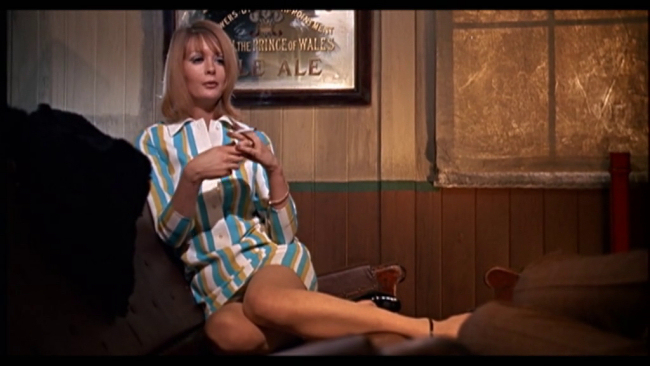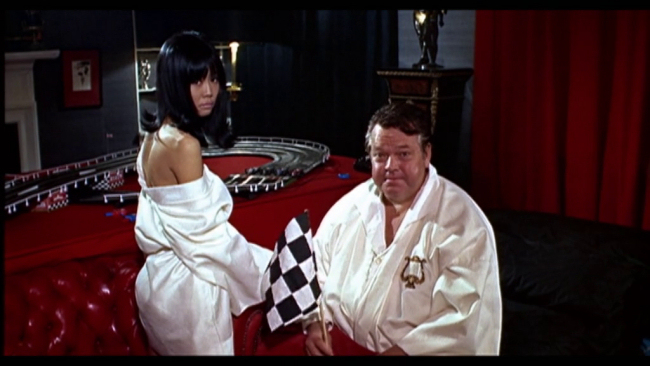Through the Mists of Memory Emerged Nothing

Hey, remember that movie with Orson Welles and Oliver Reed? You know, 1967's I'll Never Forget What's'isname, directed by Michael Winner. It's the one with short attention span editing to distract from its vapid statement and conventional plot masquerading as revolutionary.
Orson Welles receives top billing as Jonathan Lute, head of an advertising company, but he only appears in a few scenes. The film is told from the point of view of Andrew Quint (Reed), who quits Lute's company at the beginning of the film to work at an independent little magazine run by Nicholas (Norman Rodway). Andrew complains about the soulessness of his former job while Lute cynically smiles and leans back, making sinister, general statements like, "All human life is waste."

The Wikipedia synopsis says this is what the movie's all about but 90% of the film is devoted to Andrew's love life. So much plot is stuffed into his relationship status the movie acts like it never needs to stop and think about what's going on. Andrew's in the middle of a divorce from his beautiful young blonde wife, Louise (Wendy Craig), except she's always too busy getting ready for a party to discuss it with him while he's there, except for one scene where they end up having sex.

He's also seeing a beautiful blonde model, Carla (Ann Lynn), who works for Lute's ad company and who seems only mildly ruffled when he tells her he might need to break up with her on some vague newly found principles. Then he's off to meet with his beautiful blonde girlfriend, Josie (Marianne Faithfull), who's too busy trying on a tutu to discuss breaking up with him.

And, finally, he gets to work seducing the beautiful blonde virgin, Georgina (Carol White), secretary at the independent magazine he works at now. The film frequently jump cuts in the middle of conversations, Andrew going all over London to have the same vapid conversation about how he wants something more and keeps flirting with girls and no-one's sure what love is and commitment is. The editing may partly be influenced by the experimental cutting style in Jean-Luc Godard's films at the time but they reminded me more of Orson Welles. But while Welles' quickfire editing in Citizen Kane or Lady from Shanghai showed an instinct for the pace of human thought, Winner's editing is curiously inert for all its speed. He seems to generally be saying, look how very far we've come from traditional relationships here in the 60s, but ends up being only as precisely as revolutionary, and not half as insightful, as The Philadelphia Story. For all the pieces rapidly moving around the board, none of them actually becomes a character.

I did laugh at one scene where Welles somehow rapidly sets up an office above Andrew's independent magazine that looks like an Asian themed American brothel.
So how about that title? What does it mean, "I'll Never Forget What's'isname"? Nothing. It has absolutely nothing to do with anything. Well there's a running gag at Andrew's school reunion where people can't remember their classmates' names, but like most everything else in the film it's a completely disposable gag, signifying nothing.